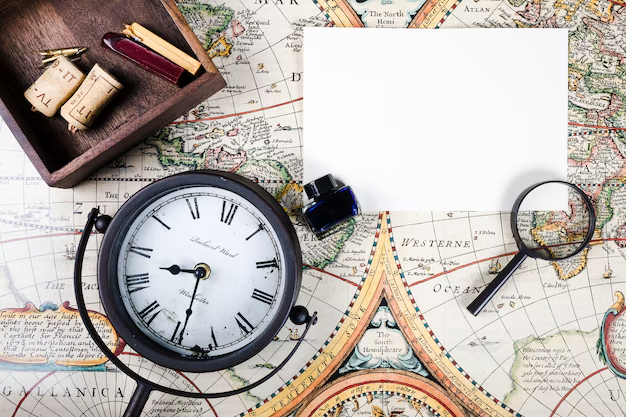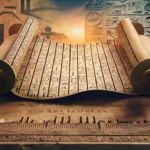History is often regarded as a vast, intricate tapestry woven from countless threads of events, people, cultures, and ideas. Each moment in time is a small, yet significant, part of a much larger picture. Understanding history’s legacy is not just about memorizing dates and facts, but about comprehending how the past has shaped the present and continues to influence the future. The tapestry of time reveals the interconnectedness of human actions, the triumphs, failures, and the wisdom gleaned from the experiences of generations before us.
The Role of History in Shaping Society
History is far more than just a collection of ancient stories or past conflicts; it’s a reflection of the societal values, technological advancements, and cultural shifts that define different periods of human existence. By studying history, we uncover how the interplay of these factors contributes to the ongoing development of society. For example, the fall of the Roman Empire not only shaped the political landscape of Europe but also influenced the rise of Christianity, the shaping of Western civilization, and the formation of modern legal systems.
Through history, we understand how ideas evolve and how they are passed down from one generation to the next. Philosophies, political ideologies, scientific theories, and artistic movements that emerged in one period often leave an indelible mark on future generations. The Enlightenment, for instance, laid the groundwork for modern democratic ideals, while the Industrial Revolution redefined the relationship between people, technology, and labor.
The Legacy of Cultural Heritage
Another essential aspect of history’s legacy is its cultural dimension. History helps preserve the stories, art, languages, and traditions of our ancestors. These elements form the foundation of cultural identity, and without understanding them, it becomes difficult to appreciate the richness of the diversity around us. For example, learning about the ancient Egyptians not only gives insight into their architecture and religion but also helps us understand the roots of modern science, mathematics, and philosophy.
Cultural heritage is transmitted through generations, and preserving it ensures that societies don’t lose touch with their origins. However, in our increasingly globalized world, the challenge of balancing modernity with cultural preservation becomes more complex. Many traditional practices and languages face extinction, and history provides the tools to understand why this happens, offering us the ability to advocate for the preservation of cultural diversity.
The Mistakes and Triumphs of History
While history often celebrates the achievements of humanity, it also holds a mirror to our darkest moments. The legacy of war, colonization, slavery, and oppression cannot be ignored, as these chapters of history continue to influence global relationships, politics, and social structures. By studying these moments, we are reminded of the consequences of human actions, and it encourages us to seek a more just, equitable world.
However, it’s important to remember that history isn’t just about the mistakes or the triumphs—it’s about understanding the lessons embedded in these experiences. The rise and fall of empires, the social revolutions, the movements for civil rights and equality, all show us how individuals and communities have fought against injustice and sought to build a better world. These lessons remain relevant as we face modern-day challenges like climate change, inequality, and geopolitical tensions.
History as a Tool for Self-Reflection
In addition to helping us understand the world around us, history also offers individuals a chance for self-reflection. The legacies of our ancestors influence who we are, where we come from, and the values we carry. By studying history, we can make sense of our personal journeys and the collective experiences of humanity. Understanding the struggles and achievements of past generations gives us a sense of purpose and continuity, linking us to something larger than ourselves.
Moreover, history can help us develop empathy by placing us in the shoes of others, showing us the diverse experiences of people from different backgrounds, times, and places. This empathy fosters tolerance, respect, and a deeper appreciation of human dignity.
7 Frequently Asked Questions (FAQs)
- Why is history important? History helps us understand the world we live in, providing context for current events and societal structures. It offers valuable lessons about human nature, social progress, and the consequences of our actions.
- Can history help prevent future conflicts? Yes, by studying past wars, revolutions, and conflicts, we can learn what led to these events and how to avoid making the same mistakes. Understanding history can guide peaceful solutions in the present.
- How does history shape culture? History shapes culture by preserving the traditions, art, language, and ideas that define different societies. It allows us to understand how these cultural elements evolved and continue to influence the present.
- What can we learn from the mistakes of history? History teaches us about the dangers of prejudice, intolerance, and unchecked power. By examining past injustices and their outcomes, we can learn to avoid repeating them.
- How do historical events shape our identities? Our identities are shaped by the histories of the societies and cultures we belong to. History provides the context for understanding our personal backgrounds and the values passed down to us.
- Is history always objective? No, history is often subjective and shaped by the perspectives of those who record it. Different interpretations of the same events can offer various insights and viewpoints, making it essential to approach history critically.
- How do we preserve history for future generations? We preserve history through the collection of artifacts, records, and oral traditions. Education and cultural initiatives also play a vital role in ensuring that historical knowledge is passed down.
Conclusion
The tapestry of time is rich with threads of knowledge, wisdom, and experience. Understanding history’s legacy provides us with a deeper appreciation of the world around us and the challenges that lie ahead. It teaches us to learn from the past, to understand the present, and to shape a future that reflects the best of human potential.
Key Takeaways
- History is more than a collection of dates; it’s a lens through which we understand the present and future.
- Cultural heritage and traditions are vital parts of history, helping to preserve identity and diversity.
- History teaches us valuable lessons, both from our mistakes and triumphs, and provides the tools for self-reflection.
- The study of history fosters empathy, tolerance, and respect for different cultures and perspectives.
- Preserving history ensures that future generations can learn from the past, contributing to a more informed, just, and connected world.




